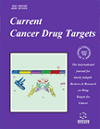
Full text loading...

Cholangiocarcinoma (CC) is a rare, aggressive cancer of the bile ducts with limited treatment advancements over recent decades. The five-year survival rate for CC remains low, around 10%, and even lower for advanced cases.
This case report discusses a 46-year-old woman with metastatic CC who achieved remarkable progression-free survival with regorafenib, a multikinase inhibitor typically used in other cancers. After multiple lines of treatment, regorafenib was given as a 7th-line therapy. Despite initial intolerance requiring dose reduction, the patient achieved 22 months of progression-free survival (PFS) with stable disease and partial regression in some areas. Her response to regorafenib significantly exceeded typical outcomes in the literature, where PFS generally ranges from 3 to 4 months. This improvement may be attributed to an FGFR2 mutation identified via next-generation sequencing, which regorafenib may effectively target.
This case suggests that patients with FGFR2 mutations might benefit from regorafenib, warranting further studies to explore this associationAs can be applied as a promising target gene to develop drug resistance and remedial efficacy.